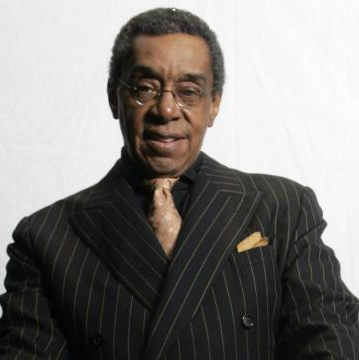Shortly after slavery was abolished in Texas in 1865 (two years later than the rest of the states), my forefathers settled and bought land in a small African American community about nine miles east of Blanco, a rural predominately white community in the lovely Texas Hill Country. Peyton Colony, a community established by freed slave Peyton Roberts, was a place where African Americans could live and have a sense of ownership, status and unity.
In the late ’60s and ’70s as a young African American girl, the media offered few television shows where African Americans could see others who represented our strengths and resiliency. In fact, most shows seemed to perpetuate the negative stereotypes and myths about African Americans. While my father and other African Americans had to attend school in Peyton Colony before schools were integrated, I had to attend school “in town.” Other than family or church events my world was made up of people who did not look, live or experience life through the same cultural lens.
In 1971 visionary Don Cornelius, creator of the long-running TV dance show, opened our sights to the world of rhythm and blues. We got to dance alongside the Soul Train dancers to the great sounds of Marvin Gaye, Aretha Franklin and Stevie Wonder, just to name a few. For an hour, we were connected to the rest of the “black world.”
 On February 1, 2012, what marks the beginning of Black History Month, I learned of the sad news that Don Cornelius ended his life. Being a mental health professional, it breaks my heart every time I hear of suicide. Some people are probably thinking, “How could Don Cornelius choose to end the very life that had opened doors for the music careers of so many African Americans and historically changed the music scene in America?”
On February 1, 2012, what marks the beginning of Black History Month, I learned of the sad news that Don Cornelius ended his life. Being a mental health professional, it breaks my heart every time I hear of suicide. Some people are probably thinking, “How could Don Cornelius choose to end the very life that had opened doors for the music careers of so many African Americans and historically changed the music scene in America?”
The anguish, disconnection and mental turmoil that lead someone to take his or her life is devastating. In an attempt to make the pain of an untreated mental illness end, thousands of Americans see suicide as the only way out. According to Mental Health America, “the most common underlying disorder is depression, 30% to 70% of suicide victims suffer from major depression or bipolar (manic-depressive) disorder.” Research shows that about 30,000 Americans die by suicide each year and an additional 500,000 attempt suicide.
Suicide is a preventable, public health issue that impacts individuals, families and communities. When most people hear about suicide, immediately the questions begin. “What happened?” “Why didn’t someone see his pain?” “How could it have been prevented?” It is important to know the warning signs of someone considering suicide. Don’t be afraid to ask someone directly, “Are you considering taking your own life?
To learn more about suicide and what you can do to help prevent the senseless loss of friends and loved ones, visit the American Association of Suicidology and the American Foundation for Suicide Prevention . If you or someone you know is considering suicide please call the National Suicide Prevention Lifeline at 1-800-273-8255. Someone is there 24 hours a day to listen and connect you with resources in your community who can help.
Don Cornelius, thank you for sharing your gifts and talents with us for over 35 years. We wish you eternal love, peace and soouuuulllll!
But oh what joy my sister and I would have at home come Saturday morning, immediately following cartoons that back then only came on television on Saturday mornings. We would perch in front of the TV and anxiously wait to hear the sound, the call to get on board The Soul Train. In 1971 visionary Don Cornelius, creator of the long-running TV dance show, opened our sights to the world of rhythm and blues. We got to dance alongside the Soul Train dancers to the great sounds of Marvin Gaye, Aretha Franklin and Stevie Wonder, just to name a few. For an hour, we were connected to the rest of the “black world.”
On February 1, 2012, what marks the beginning of Black History Month, I learned of the sad news that Don Cornelius ended his life. Being a mental health professional, it breaks my heart every time I hear of suicide. Some people are probably thinking, “How could Don Cornelius choose to end the very life that had opened doors for the music careers of so many African Americans and historically changed the music scene in America?”
